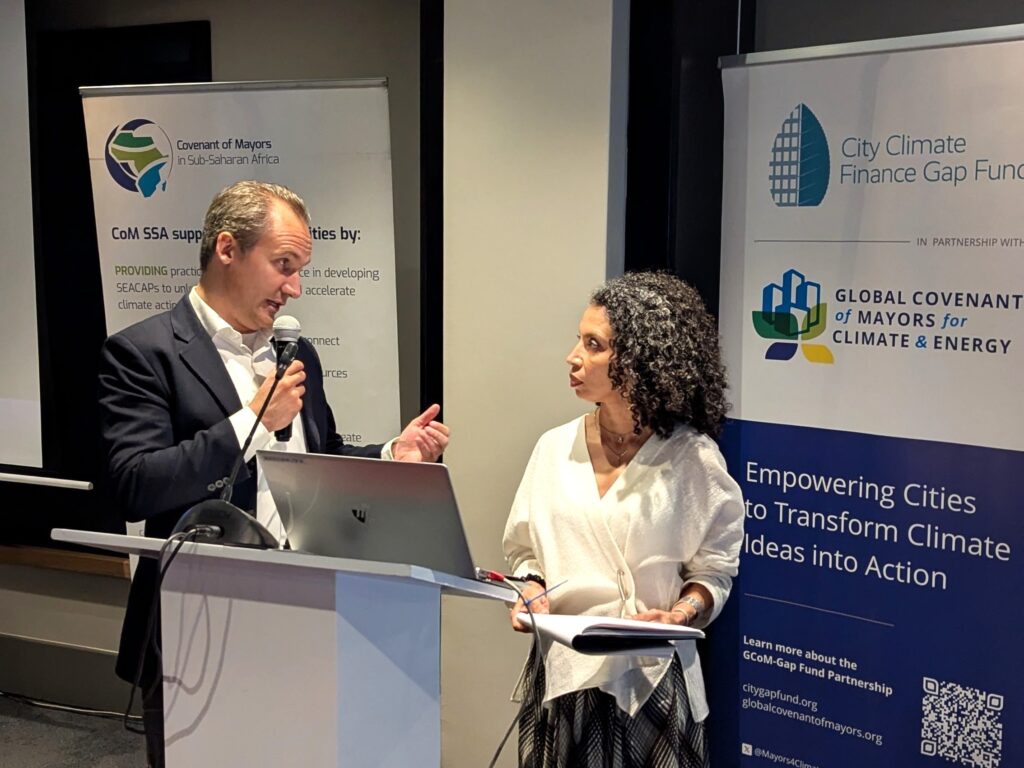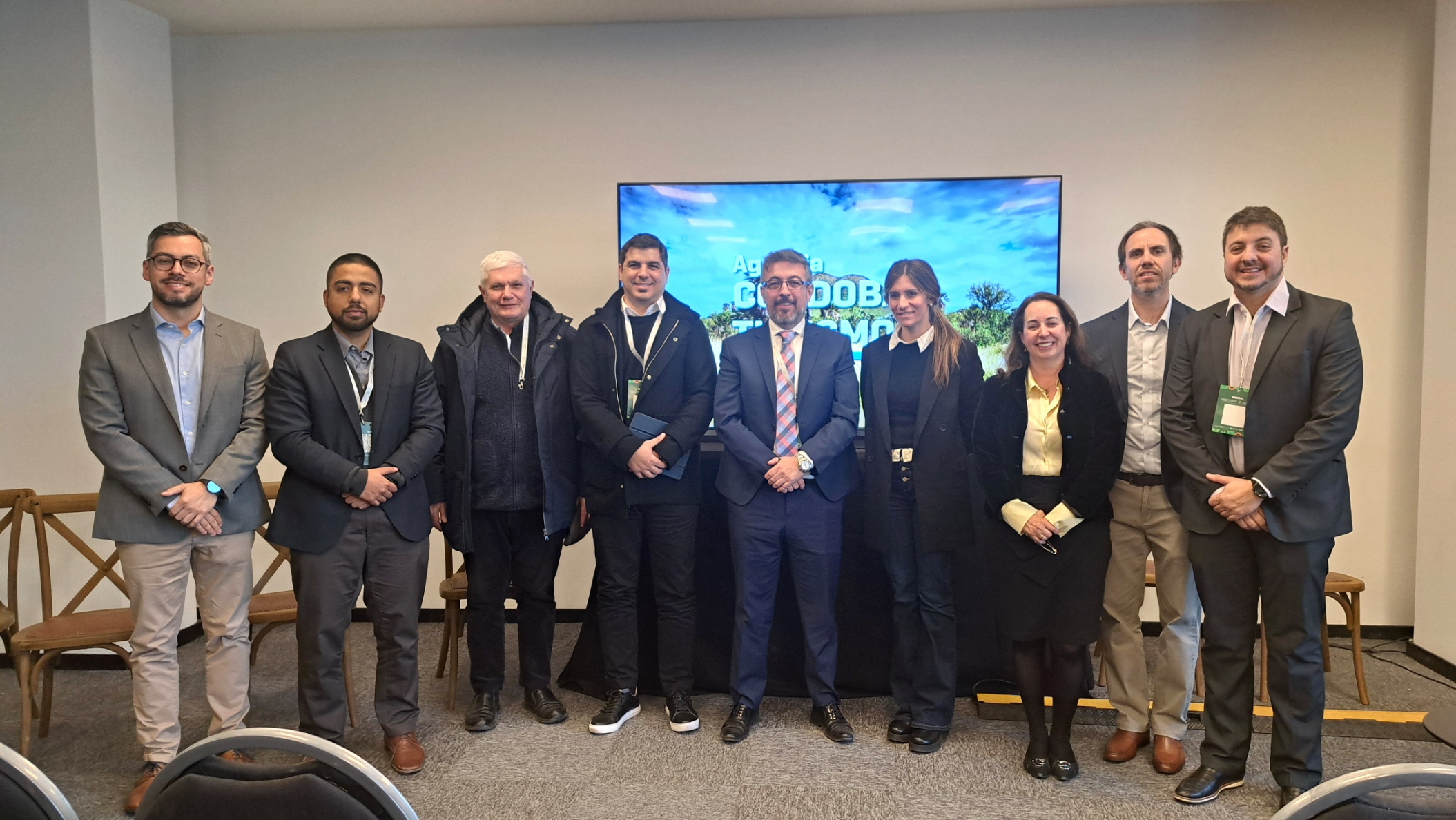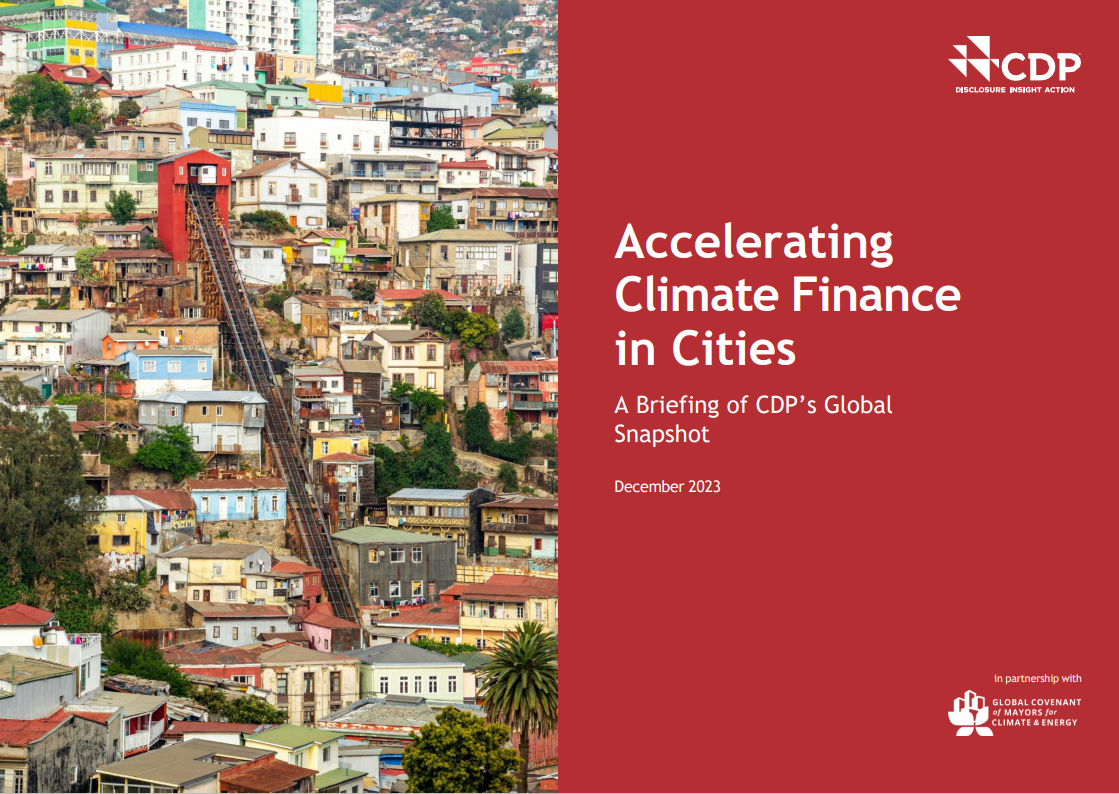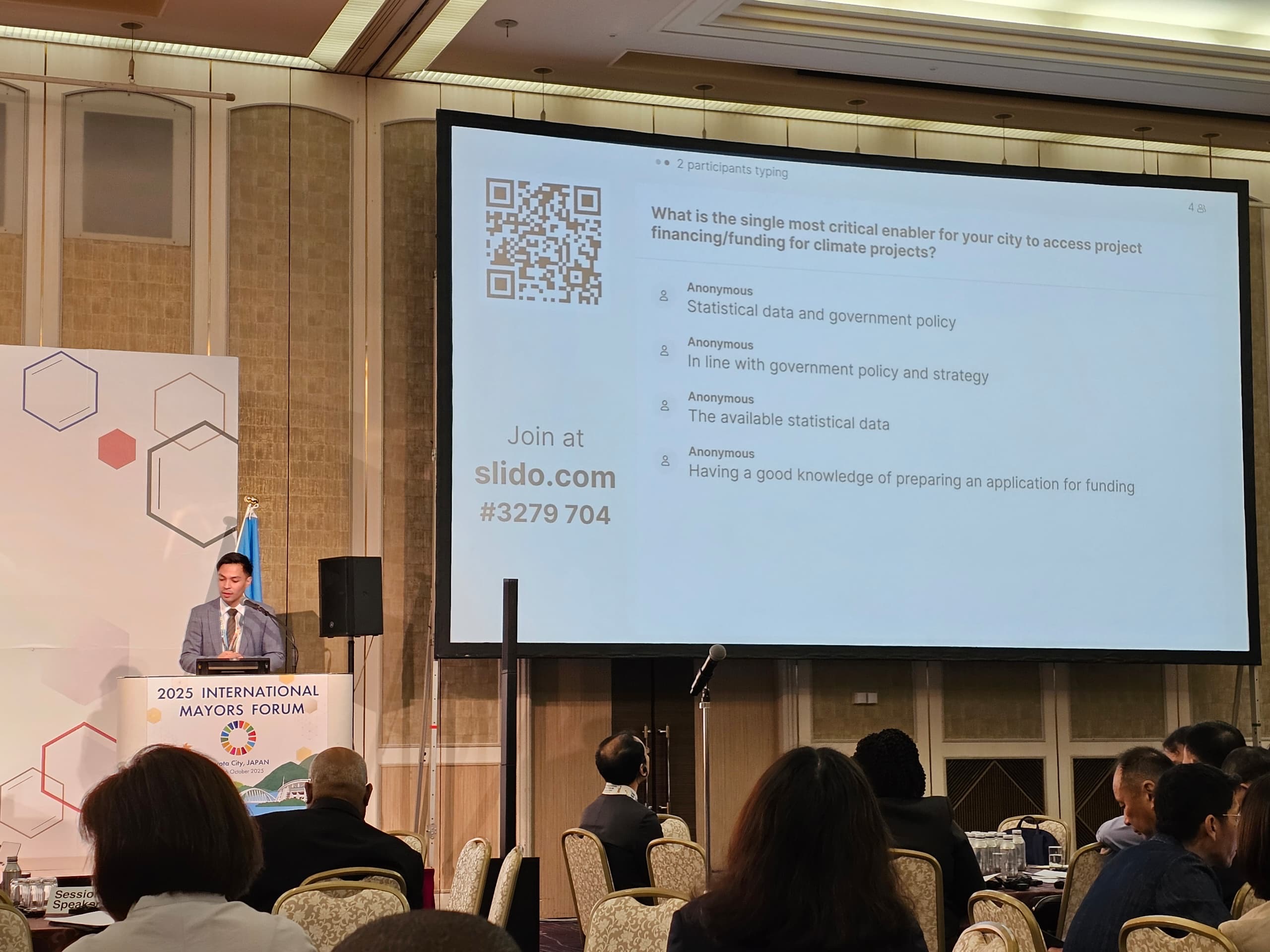Collaboration Between GCoM-Gap Fund Partnership and CoM SSA Helps African Cities Turn Climate Plans Into Action

Across Africa, cities are increasingly moving from climate ambition to implementation thanks to the growing collaboration between key regional stakeholders and initiatives – most notably the partnership between the GCoM-Gap Fund team and the Covenant of Mayors in Sub-Saharan Africa (CoM SSA). By working together to identify viable climate-related project ideas, connect cities with technical and financial partners, and build on local networks, this partnership is helping African cities prepare climate-smart, investment-ready projects that go beyond the planning phase.
Turning climate ideas into bankable projects
Bridging the gap from planning to implementation requires more than strong intentions. It calls for clear project pipelines, strong technical groundwork, and the right partnerships to unlock investment. That’s exactly what the GCoM-Gap Fund Partnership and the Covenant of Mayors in Sub-Saharan Africa (CoM SSA) are working together to deliver.
In Accra, Ghana, over half of the city’s waste is organic, posing significant environmental and public health risks. But buried in this crisis is an opportunity: turning waste into clean energy. This concept, outlined in Accra’s Climate Action Plan developed with C40 Cities, led to a biodigester project aimed at producing biogas from organic waste. With CoM SSA support, the Accra Metropolitan Assembly (AMA) developed a detailed project concept note highlighting both environmental impact and business potential.
Still, concept alone doesn’t unlock finance. In 2023, AMA partnered with GIZ Ghana and the GCoM-Gap Fund regional team to refine the project and submit an Expression of Interest to the Gap Fund. By April 2024, the project was approved for Gap Fund support, which now includes a full pre-feasibility study – from technical assessments and financial modeling to environmental analysis and stakeholder engagement.
What made the difference? Local leadership backed by strong collaboration. Early engagement by GIZ (CoM SSA’s implementing partner) accelerated progress and played a pivotal role in mobilizing additional partners – such as Swedfund- to help sustain technical support beyond the pre-feasibility stage.
In Embu County, Kenya, a similar story is unfolding. With CoM SSA’s support, Embu developed an Integrated Solid Waste Management Plan in 2022, setting out a community-driven strategy and investment priorities. Two years later, the Gap Fund stepped in to transform that roadmap into a pipeline of investable projects. A pre-feasibility study is now underway to analyze the local waste value chain, propose viable implementation options, develop concept designs, and assess local capacity.
These successful collaboration examples showcase how strategic groundwork by regional partners like GCoM regional teams and CoM SSA – through long-term planning, political engagement to fast-track partnerships, and strengthening local resource mobilization – can significantly reduce risks and accelerate the development of critical infrastructure projects.
Facilitating access to technical and financial partners
The collaboration between the two initiatives also helps cities connect with the right technical and financial partners needed to take projects to the next stage. An example of this was the Regional Climate Action Project Implementation Forum held in Cape Town in June 2025, co-organized by GCoM, the GCoM-Gap Fund Partnership and CoM SSA, as well as regional partners such as ICLEI Africa, the South African Local Government Association (SALGA), and the African Development Bank (AfDB).
The Forum brought together 27 African cities, 12 private sector companies, and nearly 30 technical and financial partners from across the climate finance ecosystem. It provided cities with space to pitch project ideas, receive targeted feedback, and participate in workshops on priority sectors such as waste management, flood and coastal resilience, nature-based solutions, and energy. Cities left the Forum with clearer pathways to investment readiness, new connections, and concrete next steps to advance their climate projects (more information here).
Another example of this collaboration is the GCoM-Gap Fund Partnership sponsoring the participation of three CoM SSA Kenyan counties – Mombasa, Kisumu, and Embu – to attend the Energy Investors Roundtable organized as part of the Urban Shift Summit in Kenya in February 2025, enabling them to pitch priority climate and energy projects directly to key financiers, including the EBRD, EIB, DBSA, and the World Bank. Ahead of the event, GCoM supported the counties in refining their proposals to align with investor expectations, helping them advance early-stage financing opportunities. These high-level forums are complemented by follow-up discussions and joint sessions co-organized by the two partners with cities to ensure continuous support to municipalities.
Building on local networks and experience
A key strength of this collaboration lies in CoM SSA’s long-standing presence and trusted relationships with African municipalities. These local teams work hand-in-hand with cities to define climate priorities and shape project proposals aligned with their Sustainable Energy Access and Climate Action Plans (SEACAPs).
Over the past year, CoM SSA, GCoM, and the GCoM-Gap Fund Partnership have co-hosted webinars, technical clinics, and in-person sessions in countries such as Ghana, Cameroon, and Senegal, ensuring that support is grounded in local realities and aligned with national climate strategies.
By combining CoM SSA’s on-the-ground networks and regional insights with the GCoM–Gap Fund Partnership’s technical expertise and investment-readiness tools, this collaboration is enabling African cities to transform climate ambitions into tangible, fundable solutions, cutting emissions, strengthening services, and creating green jobs across the continent.

Collaboration Between GCoM-Gap Fund Partnership and CoM SSA Helps African Cities Turn Climate Plans Into ActionJuly 17, 2025

Collaboration Between GCoM-Gap Fund Partnership and CoM SSA Helps African Cities Turn Climate Plans Into ActionJuly 17, 2025
